- Home
- Tony Abbott
The Golden Vendetta Page 8
The Golden Vendetta Read online
Page 8
“Roald, maybe you shouldn’t go at all,” said Sara. “It could be a trap.”
He stood on the balcony, looking out, then turned back. “I don’t think it’s a trap. I mean, not one that he’s setting. I don’t know. But I think it’s even more urgent that I attend. I don’t know exactly what it’s all about, but given the Uncle Henry connection, we know it concerns Galina and the Order. Whatever Petrescu knows, it’s big enough to take these extra steps. I have to go.”
Terence paced the living room, rubbing his forehead. “I rather agree with Sara here. Something’s fishy about this change of time and place. Geneva is very public; Gran Sasso is quite the opposite. Roald, I’d like to go with you, if you don’t mind. Just to make sure of security. Forewarned is forearmed, as they say. Maybe ask Paul Ferrere to come along as backup. And we absolutely should go now, to case it out as much as we possibly can before we go into the laboratory. Sara, what do you say I send Julian to Monte Carlo as soon as he gets in from the airport? He’ll contact you there. I’ll go with you, Roald.”
Wade’s heart thudded. He didn’t like having his father going off somewhere away from the rest of them. He felt he had to watch over his father as much as he knew his father watched over them. He watched his stepmother’s eyes narrow to pinpoints. She wouldn’t stop his father from going, not really, if Galina was involved, but she was processing what it might mean.
She went up to his father and, in front of all of them, kissed him. They held each other for a long time. But it wasn’t uncomfortable—for Wade or, he realized, for anyone else. They were all bound in a strong way, as a family, and as Guardians.
“Take care of yourselves,” she said finally. “And you, sir, better call me every ten minutes.”
His father smiled at her. “Maybe every half hour.”
She brushed tears from her eyes. “Okay, then. All right.”
All right? Maybe. But a key team member was being ripped out of the lineup. Wade didn’t like it and said so.
“I know,” his father replied. “It’s not good. It’s not the best. But this is the way we live now.” He paused, as if choosing whether to say what he was thinking. He did anyway.
“I hate what’s happening to us. Sara does, too. It’s not normal for people as young as you to live this way. Fearing and distrusting so many people. But then, our lives aren’t normal. Not since Uncle Henry died.”
“Was murdered,” said Darrell.
Wade’s father’s face went dark, distant. “Yes, was murdered.”
But we’re still kids. Wade wanted his father to know that. They hadn’t been ruined by the weird life they were leading, not yet. They were still hopeful, if that was the right word. They had gotten closer to one another in a way that was hard to define, maybe, but it was a good thing. Sure, the world was dangerous; at least their world was. And it was just common sense to be on the alert. It didn’t have to mean that you lost hope. If anything, you celebrated good people and things more when you did find them. That was what he wanted to say.
What he came up with was simpler.
“We’ll be okay, Dad. You have to be, too.”
His father hugged him and Darrell and Sara tightly after that. A long minute or two. No words. And that was it. Their new style of reunions and good-byes. Back to business. Find the next relic.
“I’ll ring for the car,” said Terence.
CHAPTER SIXTEEN
The airport nearest to the Gran Sasso laboratory in Italy was Fiumicino in Rome, also known as Leonardo da Vinci airport—which, Darrell concluded, “totally means we’re on the right track.”
Wade wasn’t sure of anything just yet, but he’d long ago given up on the idea of coincidence. Everything meant something.
Just after a cab came to take Roald and Terence a few miles west to the Nice airport, a pristine and roomy 1972 four-door Citroën DS Super 5 appeared in front of the apartment. The car was black, shiny, long, and low, with huge windows and bug-eye headlights. A driver hopped out, leaving his door open.
“For Mrs. Sara to drive,” he said. “To Monte Carlo—”
“Shotgun!” said Darrell, settling in next to his mother as she slid behind the wheel, with Wade, Lily, and Becca piling into the roomy backseat. After accustoming herself to the dashboard, Sara pushed the car into gear, and they set off for Monte Carlo.
It was going on six p.m., and the traffic in the thick of Nice lessened slightly when they took the main road to the east. It curved up from the outskirts of the city’s waterfront and climbed away into the foothills. Wade could see the wandering coast, lit up against the dark water.
“It’s been a while since we saw the Mercedes,” said Becca. “It could be anywhere at this point. We might have lost it forever.”
“Or we could be incredibly lucky,” said Darrell. “I vote for lucky.”
Sara sped along as quickly as speed limits would allow. More than once, she was forced to stop short as vehicles lumbered carelessly onto the road from driveways hidden on the right. One tiny car popped out from a villa, nearly hurling them off the road into a mess of jagged rock and pine trees.
“Geez, French people, get a license!” Lily shouted out the window.
“Can you imagine a car chase on this road?” said Wade.
“And now you did it!” Darrell groaned. “You pretty much just asked to be in a high-speed car chase on the skinniest road known to man. Nice job, Wade.”
“That’s soooo . . .” Wade started, but stopped. “Actually, it’d be fun.”
“Not with me driving, thank you,” said Sara.
Darrell grinned. “It would be fun! Like I said, nice job.”
“There’s a faster road,” Becca said, scanning a road map on her phone. “The left after the next one will take us up onto a freeway. We’ll make better time.”
“Good call.” Sara smoothly exited the slow coast road, and they were soon motoring far more quickly on the highway.
After a while, Lily, who had been quietly tapping away on her tablet, cleared her throat. “I’ve been searching on all kinds of image and language sites, and I think I found something about the tattoo, if your sketch is right, Wade.”
“It is,” he said. “Of course, I’m no da Vinci.”
“I should have traced it,” said Darrell. He never let anyone forget that he traced very well. “But I don’t trace tattoos. Too icky.”
Lily shot him a look. “Anyway, the symbol you saw—an O with lines coming into it—seems to be very close to a letter from an old runic Hungarian alphabet. I can’t find any secret society that uses it as a symbol, but it’s a corporate logo belonging to a company called Drangheta Enterprises, a shipping company run by a rich guy named Ugo Drangheta. They do lots of stuff, but mainly shipping.”
“Ugo Drangheta,” said Darrell. “By ‘rich’ let’s assume he’s super rich, and has armies of tattooed assassins doing his dirty work, which means this quest just went up a notch on the danger scale.”
Wade turned to him. “Armies? No one said ‘armies.’ And ‘danger scale’?”
“I just invented it.”
Becca cleared her throat. “Lil, the triangle with the fives in it is a gift that keeps on giving. I just found another passage. I really thought I’d found them all, but listen to this.”
In the workshop of the Milanese master we sit by candlelight. He first presents me with a pair of cryptologic lenses, then fashions the silver arm.
Appropriately, the relic, a three-sided mirror, a prism of silvery light, is to be the arm’s internal engine. He uses leather gloves to keep the starry prism from burning his fingers. He crafts the arm so that the prism powers it.
“I know what a prism is,” said Darrell. “I can’t picture a three-sided mirror.”
“Unless it’s like the kind you see in a dressing room where you can see behind you and on the sides at the same time,” said Lily. “Maybe?”
“Cryptologic lenses could be a way of describing spectacles,” said Sara.
<
br /> “Yes, good.” Wade pulled out from his backpack the leather binder he kept his antique star chart in. He removed the chart. It glistened with gold and silver ink.
“Copernicus says it’s ‘appropriately’ three-sided,” he said. “There’s a constellation called Triangulum. It’s formed by the narrow triangle of its three brightest stars. It’s between Andromeda and Aries in the northern sky.”
“Leonardo was fascinated by mirrors late in life,” said Sara, downshifting in heavier traffic. “In his villa at Clos Lucé he was supposed to have had a whole workshop devoted to his study of mirrors and their qualities. And their powers.”
“That could be it,” said Wade. “There have been a lot of triangles in the clues so far. I wonder if the relic is simply Triangulum. . . .”
“Mom, take the next exit,” said Darrell.
They headed south toward the coast again. The narrow walled roadway was bordered by terraced hillsides, sprinkled with red tile roofs and marble steps on one side and daggerlike pines on the other. At last, the road wound down through the hills, past a handful of small villages, to the glittering coast of Monte Carlo, another magnificent jewel on the Mediterranean.
Magnificent, sure.
But Wade couldn’t forget that they’d followed a pair of killers there.
CHAPTER SEVENTEEN
Monte Carlo was tiny, and Lily found the evening streets crushingly jammed.
There was an irritating backup at every intersection. Pedestrians swarmed across the road whenever they wanted. And not only did it appear that somebody had just polished every surface in the town, but the gull-wing Mercedes she’d thought so distinctive was one of about a billion high-end sports cars cruising the pinchingly narrow streets.
So they had no lead at all, other than a hope that five sets of eyes scouring every single street would spot something.
“Let’s drive around a bit,” Sara said.
“And look for silver cars,” Becca added.
“Silver Mercedeses,” said Darrell.
Unlike Nice, with its broad, elegant seaside, the Principality of Monaco—of which Monte Carlo was the main part—was compact, built all the way up a surrounding ridge of hillsides, at the base of which stood a U-shaped harbor overflowing with mega-yachts.
“If you can believe it, they race cars on these skinny streets,” said Darrell.
“And now you did it,” said Wade. “We’ll be racing around in no time.”
Darrell wiggled his eyebrows. “You’re welcome.”
They cruised the streets slowly for the next half hour or so, until Sara pulled the car over. “This is pointless,” she said. “For all we know, they’re driving around, too. We could be a street ahead of or behind Sunglasses and the bookseller, but we’ll never catch up to them. I don’t know what to do.”
Then Julian called.
Darrell snapped up his mother’s phone and put it on speaker.
“Guys, I think I know why Gerrenhausen’s in Monte Carlo. Meet me up at Casino Square, and hurry. It starts in an hour.” He clicked off.
Hearing his voice, a kind of whispered excitement, Lily’s senses jangled. Normally, they were being watched, pursued, hounded by the Order’s agents. But since they’d shadowed Sunglasses and Gerrenhausen in Nice, something new was taking shape. They were going on the offensive. They were tailing one of the most dangerous agents in the Order and a little murderous bookseller. The Order hadn’t spotted them yet, and they had to keep it that way.
“Casino Square,” she said. “I saw a sign. It’s up the hill past the harbor.”
Sara motored up a long curving road from the harbor and into what Julian had called Casino Square, a collection of grand stucco buildings at least a hundred and fifty years old, nestled around an ornamental public garden. Julian waved them down from an open parking space on the street in front of the baroque wedding cake itself, the Casino de Monte-Carlo.
Julian really looked like his father, Lily thought, which made her wonder what his mother was like. She had died when he was little and living in Myanmar. Obviously, she must have been pretty. What? Never mind. I’m tired.
“Julian, man, good to see you,” said Darrell, slipping out and doing a boy handshake with him. Wade did the same. Julian’s small vintage Fiat sports car—Darrell identified it as a 1962 Spyder—was parked between a Maserati and a Maserati. There sure was a lot of money in the South of France, she thought.
Julian flicked his finger at another wedding cake, sitting perpendicular to the casino. “The Hôtel de Paris is hosting an auction of fifteenth- and sixteenth-century books, manuscripts, and artifacts. I’m willing to bet that Gerrenhausen is here in his official capacity as an antiquarian to purchase something for Galina.”
“Something we probably also want,” said Becca.
“No doubt,” said Julian. “I’ve been here for about thirty minutes. I took a stroll inside the hotel, helped pad the desk clerk’s wallet. Neither Gerrenhausen nor Cassa has appeared yet, but I’m hoping they will.”
“Cassa?” said Sara. “You mean Sunglasses?”
“Sorry. His name’s Bartolo Cassa. He’s Spanish. Been with the Order for the last three years. Galina recruited him in South America. Which is why he was assigned to . . . you.”
Sara darkened. “It doesn’t help, knowing his name.”
“He’ll pay someday,” said Darrell. “He will.”
“Look!” Lily gasped. “The Mercedes. Ha! I am such a homing device.”
The silver Mercedes rolled to a stop in front of the hotel. The passenger door swung up. The bookseller got out, and the door lowered behind him. Sunglasses—Cassa—tore away from the curb around the back of the building.
Oskar Gerrenhausen stood on the sidewalk, checking the time on his wristwatch. Then he spun on his heels and walked nimbly up into the lobby.
“Okay, everybody listen.” Sara collected them behind a large tree. “We have to assume that both Sunglasses—Bartolo Cassa—and the bookseller either know we’re here or will soon. It’s only a matter of time. We have to stay out of sight, no exceptions. Even you, Julian. So let’s be smart. Come on.”
“Wait a second,” said Julian. “Cassa didn’t use the hotel’s valet parking, but he surely won’t leave the bookseller here alone. To me, this means he’s parking the car himself and may come back this way on foot. We can’t have him stumbling on you from behind. Maybe I should wait here and text you if I see him return, stall him if I can.”
“Good idea,” said Sara.
“Don’t do anything brave,” said Becca. “He’s a creep.”
“I heard.”
Sara looked around and spotted a loose group of tourists crossing the square. “We go with them. Pretend like you’re with them, but don’t draw attention to yourselves. Come on.”
Three minutes later, they had crossed the darkening square and were inside the Hôtel de Paris.
CHAPTER EIGHTEEN
Wade breathed in a soft gasp when they entered the lobby. “Whoa . . .”
“Uh, yeah,” said Darrell.
The room flashed with the brilliance of a million chandeliers. Massive columns held up a very high ceiling that was painted blue and gold with hundreds of chubby baby angels flying from corner to corner. The slick marble floors reminded Wade of a museum’s, except for the constant rumbling noise and movement of people crisscrossing the floor like at a railway station.
With so many rolling suitcases, the pattering of flip-flops, the tootling of bellhops’ whistles, the smell of coffee and sea air, and piano music floating across the lobby from a woman surrounded by a jungle of blooming pink and blue flowers, it was hard to focus on any one thing.
Becca did. “There he is,” she whispered.
The bookseller was speaking to a middle-aged man in a light-colored suit. The man wore a name tag on the lapel of his jacket. He gestured up the grand staircase toward a room with double doors. A small easel stood outside the room, and two security guards were stationed, one
on either side.
“The auction,” said Darrell, checking his watch. “In forty-five minutes.”
Gerrenhausen glanced at his watch, too, for the hundredth time, turned from the man in the light suit, and hurried straight to the elevator.
“I’ll ask at the front desk if we can get in,” said Sara.
Wade went with her. The young man behind the marble counter smiled stiffly when they approached. “Oui, madame?”
When Sara asked about the auction, his smile faded.
“I am very sorry, madame. It is an auction by invitation only. You must have proper credentials, yes?”
“Where do we get those?” asked Wade.
The man glared at him. “One does not get credentials. One has credentials! Now if you will excuse me, I have guests to deal with”—there were none waiting at the counter—“and I em completed wis you!”
“Thank you,” said Becca as she pulled them away from the desk. “Julian texted. Sunglasses is coming up the street.”
Sara hissed under her breath. “Everyone behind the palm trees. Hurry.”
Wade hated how his stepmother had gotten sucked into the relic hunt—kidnapped, shuttled halfway across the world in a coffin, trapped like a prisoner by Galina Krause in Kronos, the Order’s creepy time machine. But he totally admired how she had accepted the whole espionage deal they’d had to adopt—and were still refining. Staying under the radar, keeping safe, being bold when you had to, hiding otherwise. Sara was good at it.
He didn’t like that his dad wasn’t there, but if his father had to be away for a little while on Guardian business, Sara was proving a good leader.
Moments later Bartolo Cassa pushed into the lobby, took three or four long steps, then opened his phone. He read a message, then texted a reply. He waited for an answer. When it came a few seconds later, he read it, pocketed the phone, and headed directly to the elevator.
“I think my names for people are better than their actual names,” said Lily. “It helps keep them not real people but units. Lousy murdering units.”

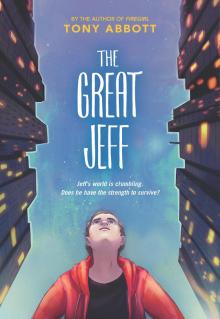 The Great Jeff
The Great Jeff Underworlds #1: The Battle Begins
Underworlds #1: The Battle Begins Superhero Silliness
Superhero Silliness Treasure of the Orkins
Treasure of the Orkins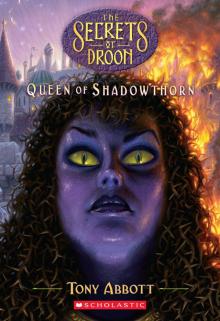 Queen of Shadowthorn
Queen of Shadowthorn The Knights of Silversnow
The Knights of Silversnow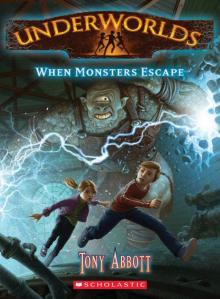 Underworlds #2: When Monsters Escape
Underworlds #2: When Monsters Escape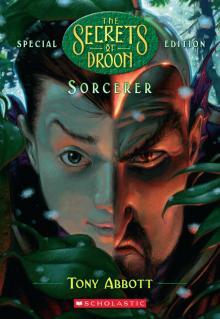 Sorcerer
Sorcerer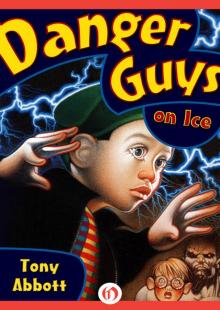 Danger Guys on Ice
Danger Guys on Ice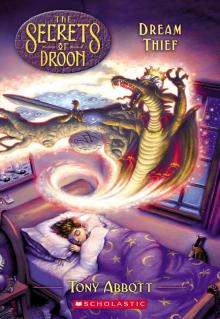 Dream Thief
Dream Thief The Moon Scroll (The Secrets of Droon #15)
The Moon Scroll (The Secrets of Droon #15) The Coiled Viper
The Coiled Viper Pirates of the Purple Dawn
Pirates of the Purple Dawn What a Trip!
What a Trip! Moon Magic
Moon Magic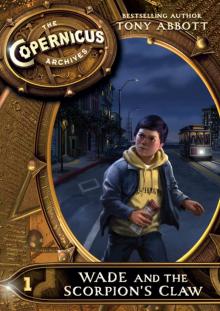 Wade and the Scorpion's Claw
Wade and the Scorpion's Claw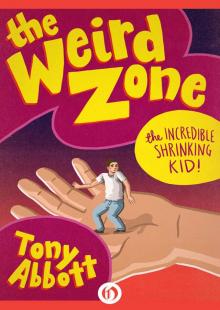 Incredible Shrinking Kid!
Incredible Shrinking Kid!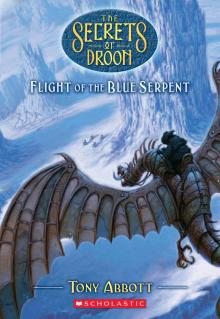 Flight of the Blue Serpent
Flight of the Blue Serpent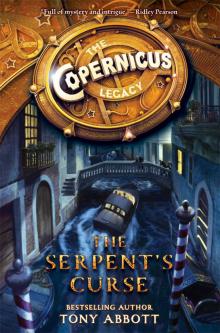 The Serpent's Curse
The Serpent's Curse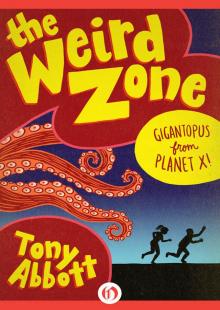 Gigantopus from Planet X!
Gigantopus from Planet X! The Great Ice Battle
The Great Ice Battle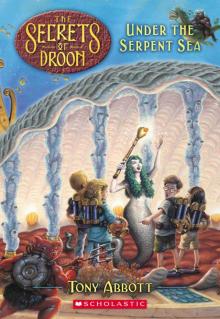 Under the Serpent Sea (The Secrets of Droon #12)
Under the Serpent Sea (The Secrets of Droon #12) The Riddle of Zorfendorf Castle
The Riddle of Zorfendorf Castle Lost Empire of Koomba
Lost Empire of Koomba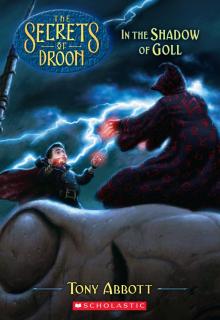 In the Shadow of Goll
In the Shadow of Goll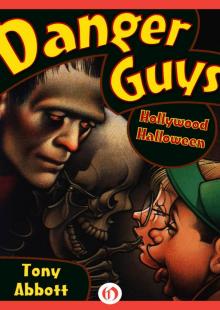 Danger Guys
Danger Guys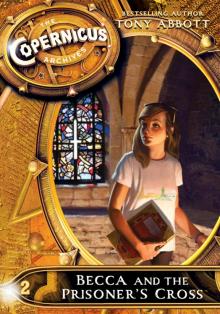 The Copernicus Archives #2
The Copernicus Archives #2 Lunch-Box Dream
Lunch-Box Dream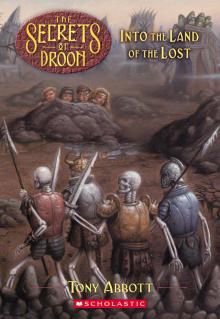 Into the Land of the Lost
Into the Land of the Lost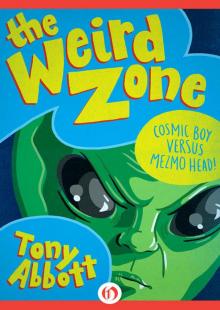 Cosmic Boy Versus Mezmo Head!
Cosmic Boy Versus Mezmo Head! The Crazy Classroom Caper
The Crazy Classroom Caper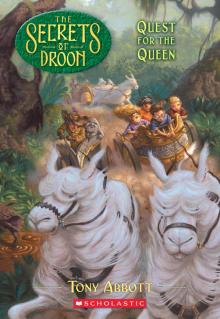 Quest for the Queen
Quest for the Queen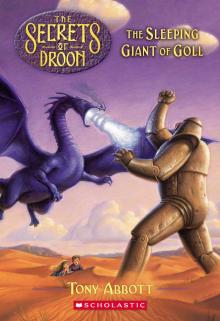 The Sleeping Giant of Goll
The Sleeping Giant of Goll The Startling Story of the Stolen Statue
The Startling Story of the Stolen Statue Brain That Wouldn't Obey!
Brain That Wouldn't Obey!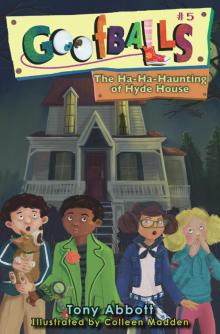 The Ha-Ha-Haunting of Hyde House
The Ha-Ha-Haunting of Hyde House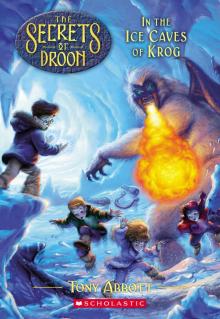 In the Ice Caves of Krog
In the Ice Caves of Krog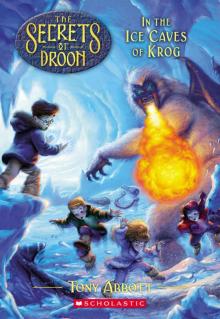 In the Ice Caves of Krog (The Secrets of Droon #20)
In the Ice Caves of Krog (The Secrets of Droon #20) Beast from Beneath the Cafeteria!
Beast from Beneath the Cafeteria! Mississippi River Blues: (The Adventures of Tom Sawyer) (Cracked Classics, 2)
Mississippi River Blues: (The Adventures of Tom Sawyer) (Cracked Classics, 2)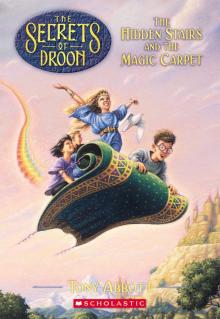 The Hidden Stairs and the Magic Carpet
The Hidden Stairs and the Magic Carpet The Mysterious Island
The Mysterious Island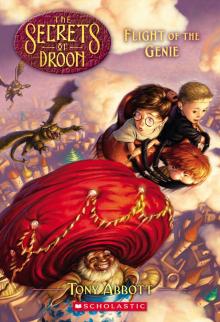 Flight of the Genie
Flight of the Genie Voyage of the Jaffa Wind
Voyage of the Jaffa Wind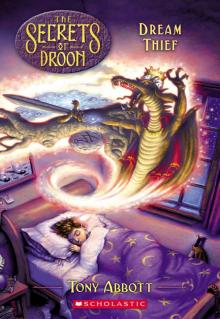 Dream Thief (The Secrets of Droon #17)
Dream Thief (The Secrets of Droon #17)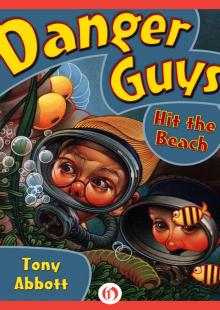 Danger Guys Hit the Beach
Danger Guys Hit the Beach Escape from Jabar-loo
Escape from Jabar-loo Zombie Surf Commandos from Mars!
Zombie Surf Commandos from Mars! Firegirl
Firegirl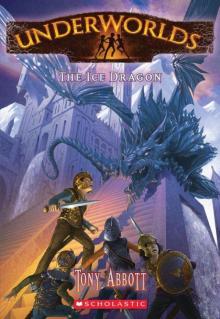 Underworlds #4: The Ice Dragon
Underworlds #4: The Ice Dragon Attack of the Alien Mole Invaders!
Attack of the Alien Mole Invaders! The Chariot of Queen Zara
The Chariot of Queen Zara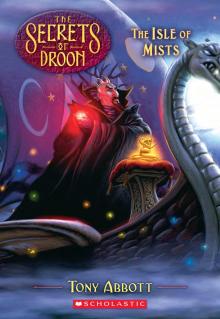 The Isle of Mists
The Isle of Mists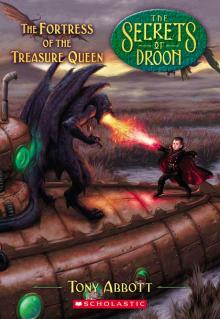 The Fortress of the Treasure Queen
The Fortress of the Treasure Queen The Moon Scroll
The Moon Scroll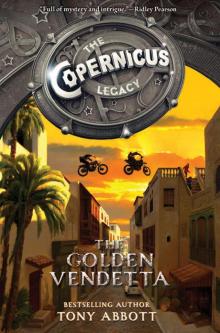 The Golden Vendetta
The Golden Vendetta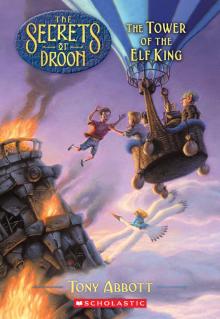 The Tower of the Elf King
The Tower of the Elf King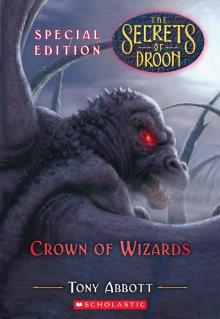 Crown of Wizards
Crown of Wizards Search for the Dragon Ship
Search for the Dragon Ship Wizard or Witch?
Wizard or Witch?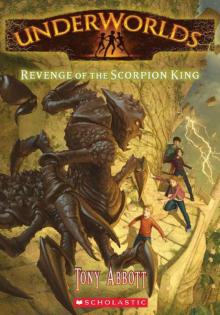 Underworlds #3: Revenge of the Scorpion King
Underworlds #3: Revenge of the Scorpion King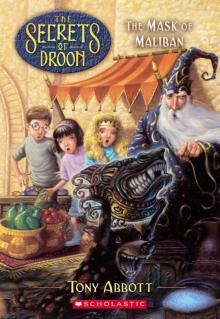 The Mask of Maliban (The Secrets of Droon #13)
The Mask of Maliban (The Secrets of Droon #13)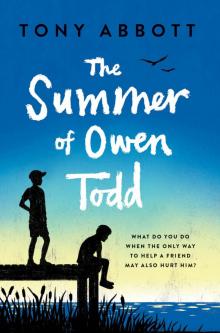 The Summer of Owen Todd
The Summer of Owen Todd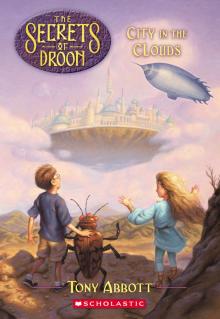 City in the Clouds
City in the Clouds Knights of the Ruby Wand
Knights of the Ruby Wand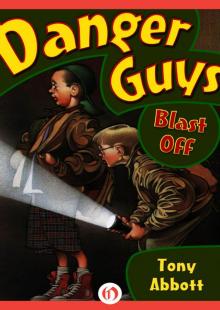 Danger Guys Blast Off
Danger Guys Blast Off Danger Guys and the Golden Lizard
Danger Guys and the Golden Lizard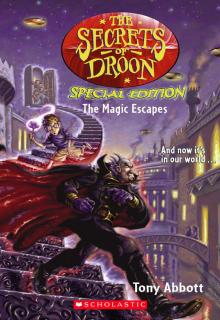 The Magic Escapes
The Magic Escapes Mississippi River Blues
Mississippi River Blues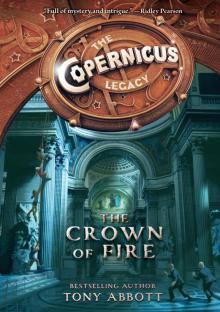 The Crown of Fire
The Crown of Fire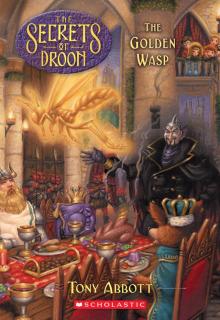 The Golden Wasp
The Golden Wasp Voyage of the Jaffa Wind (The Secrets of Droon #14)
Voyage of the Jaffa Wind (The Secrets of Droon #14)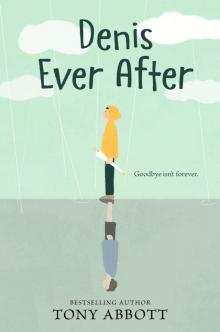 Denis Ever After
Denis Ever After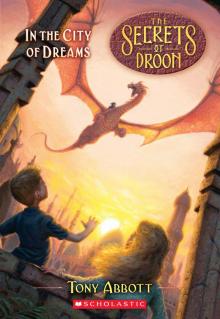 In the City of Dreams
In the City of Dreams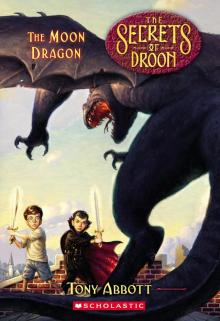 The Moon Dragon
The Moon Dragon Revenge of the Tiki Men!
Revenge of the Tiki Men!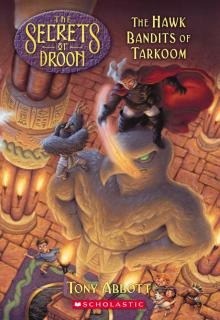 The Hawk Bandits of Tarkoom
The Hawk Bandits of Tarkoom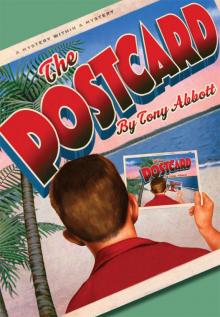 The Postcard
The Postcard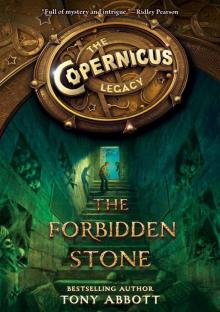 The Copernicus Legacy: The Forbidden Stone
The Copernicus Legacy: The Forbidden Stone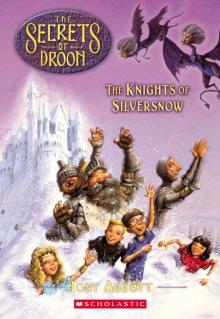 The Knights of Silversnow (The Secrets of Droon #16)
The Knights of Silversnow (The Secrets of Droon #16) Under the Serpent Sea
Under the Serpent Sea Voyagers of the Silver Sand
Voyagers of the Silver Sand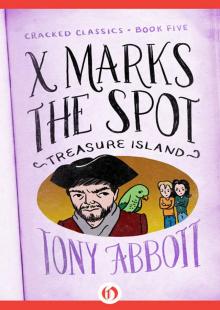 X Marks the Spot
X Marks the Spot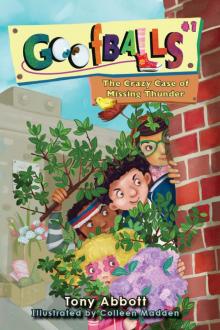 The Crazy Case of Missing Thunder
The Crazy Case of Missing Thunder Journey to the Volcano Palace
Journey to the Volcano Palace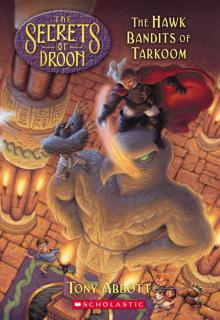 The Hawk Bandits of Tarkoom (The Secrets of Droon #11)
The Hawk Bandits of Tarkoom (The Secrets of Droon #11)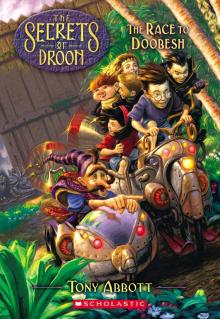 The Race to Doobesh
The Race to Doobesh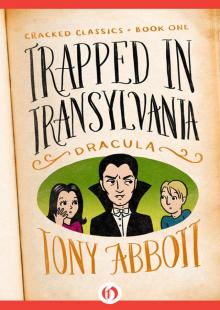 Trapped in Transylvania
Trapped in Transylvania Humbug Holiday
Humbug Holiday Goofballs 4: The Mysterious Talent Show Mystery
Goofballs 4: The Mysterious Talent Show Mystery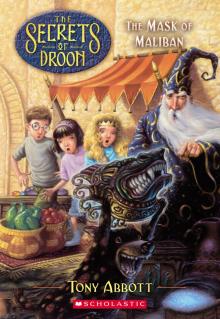 The Mask of Maliban
The Mask of Maliban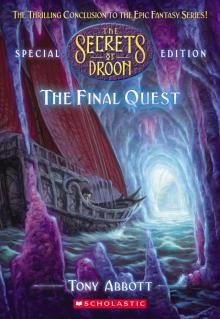 Final Quest
Final Quest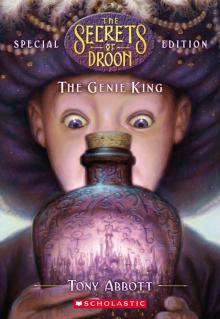 The Genie King
The Genie King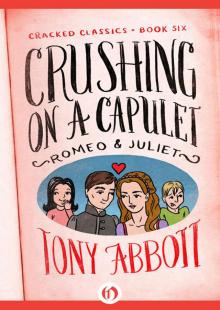 Crushing on a Capulet
Crushing on a Capulet